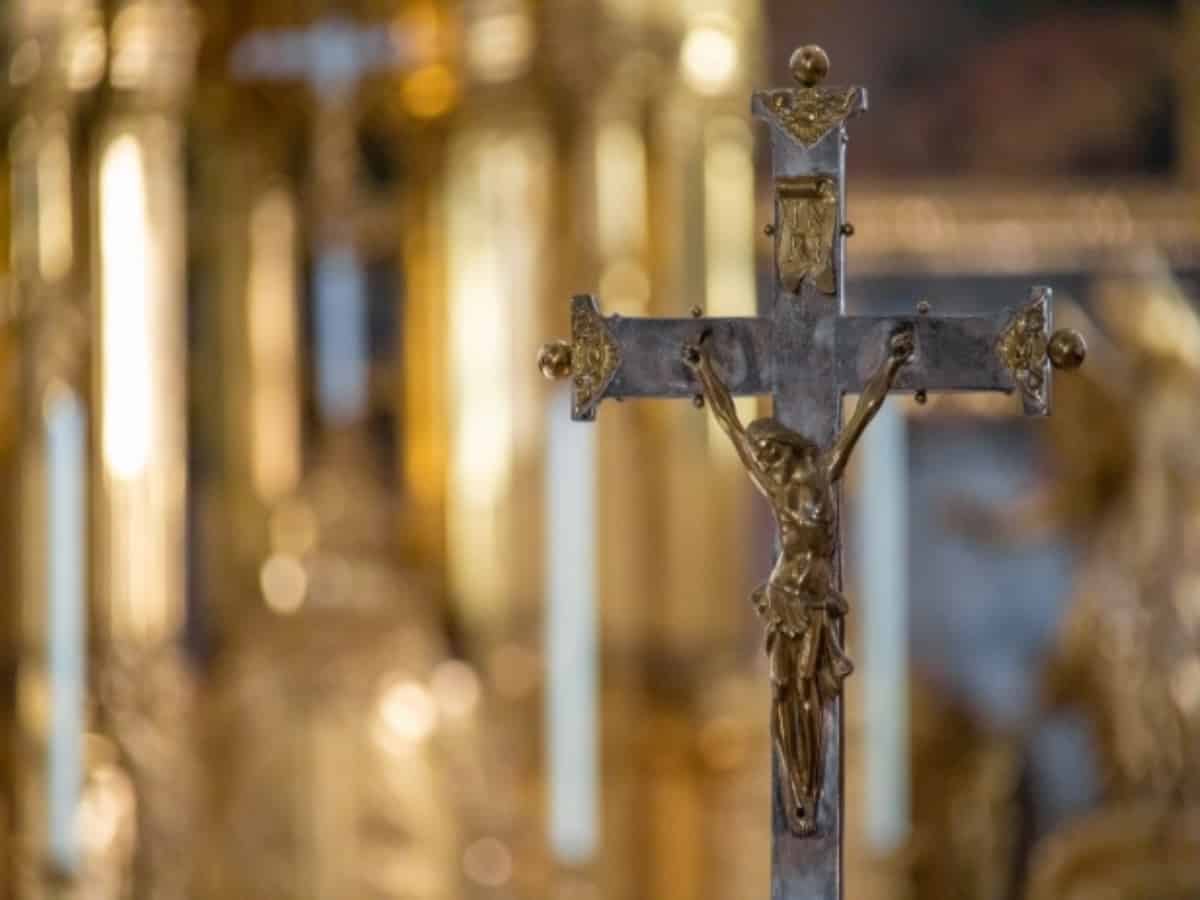
The BJP’s rocky relations with the Christian community was thrusted to the forefront on several occasions in the recent past. Not long ago, in 2021, India saw frequent attacks on Christians and churches-up to 300 attacks were recorded in the first nine months of 2021.
In late October that year, Pope Francis, the global head of the Catholic Church, was visiting India — the country with Asia’s second-largest Christian population.
However, shortly prior to that on the occasion of Dussehra, RSS chief Mohan Bhagwat had sent out a word of warning to Hindus against religious conversion and alleged “demographic changes” in the northeastern states which have Christian population in majority.
Soon after Bhagwat’s speech, a BJP legislator in Madhya Pradesh, Rameshwar Sharma, called for a “Chadar Mukt, Father Mukt Bharat” India (indicating an India free of Muslims and Christian priests) in a speech.
Matters had escalated to the extent that violent attacks on churches and Christians began breaking out across India; mobs even openly announced to “behead” them to stop them from converting Hindus.
In July in the same year, Father Stanislaus Lourduswamy, popularly known as Stan Swamy, a Jesuit priest who had worked closely with tribals of Jharkhand for over five decades, breathed his last two days after he was put on a ventilator following a cardiac arrest. He was arrested the previous October in connection with Bhima Koregaon violence.
Additionally, was held on the charges of wanting to create a Muslim-Dalit alliance and conspiring against the Indian state in close collaboration with Maoists. He was detained under Unlawful Activities (Prevention) Act and was facing a trial that never happened. He died ailing in judicial custody at the age of 84.
Further back, a landmark incident in the act of violence against the Christian community was the killing of Staines.
Graham Stuart Staines, an Australian Christian missionary, was working in Odisha since 1965 as part of an evangelical missionary organisation called Mayurbhanj Leprosy Home and cared for people with leprosy. He also cared for tribals in the area who lived in abject poverty.
However, some Hindu groups alleged that he lured many Hindus into in the Christian faith. The Wadhwa Commission revealed that although some tribals had been baptised, there was no evidence of forced conversions.
But in January 1999, Staines, along with his two sons (aged 10 and 6), was charred to death by Bajrang Dal fundamentalist.
In 2003, Bajrang Dal activist Dara Singh was convicted of leading the murderers and was sentenced to life imprisonment.
Fast forward to 2023, in the well-informed state of Kerala, BJP has been trying to make inroads, but via its Christian community.
However, the Christian leadership in the southern state is divided in their approach to the ruling party, and there is a significant difference along caste and ecumenical lines within the church in Kerala.
When the Prime Minister visited the southern state on April 25, he met eight spiritual leaders of churches who belong to the Episcopal Churches.
However, there was a conspicuous absence of the representatives of prominent sects among Keralite Christians. The Protestant churches, including the Church of South India and Pentecostal Churches and other evangelical churches were not present on the ocassion. Marthoma Church, a Protestant denomination, was invited but it did not attend.
This points to the ecumenical sects that see BJP as a possible political alternative. Also, the churches that attended the meet represented the dominant group — the Syrian Christians of various sects across the state.
Kerala is home to nearly 61.41 lakh Christians that add up to 18.38 per cent of the state’s population.
Kerala has had a trend whereby the Christian vote, just as the Muslim vote, goes to the Congress-led United Democratic Front’s (UDF). But, in 2021 Assembly elections, a visible shift was observed in the voting trend and the churches in Kerala appeared to warm up to BJP.
However, a priest from Idukki district had said: “The UDF largely represents Muslim leaders who support both Muslim League and Congress. Now even LDF has become a viable option for Christian political leaders because of this.”
‘Love jihad’ and ‘narcotics jihad’ became matters of concern when a Bishop in central Kerala’s Pala in 2021, accused Muslims in the state of “corrupting Christian youth with narcotics and luring them into Islam.”
Further, in north Kerala’s Kozhikode district, Syro-Malabar church went on to publish a booklet on love jihad and accused Muslim men of luring Christian women into their faith.
Meanwhile, semi-political Christian outfits like Christian Alliance for Social Action (CASA) have swayed the community towards BJP. CASA has a decisive say within the community and it has been vehemently opposing the alleged “allurement” of Christians into Islam.
However, it is not yet known to what extent the Christian vote has successfully turned in favour of BJP.
Fears also abound regarding demographic alteration in the state with respect to conversion to Islam.
In the backdrop of these dynamics, and in the run up to 2024 Lok Sabha elections, BJP has held out its hand to a community that its ideological mentor was suppressing just two years back.
